It’s an icy morning in Mayfair and as we slowly battle through the stop-start traffic towards our destination on the other side of the city, the needles on the oil and water temperature gauges of the Lancia 2000 HF Coupé in which we’re travelling are reassuringly central. Robin Mann, who has spent the last six years restoring the handsome little saloon, can hardly believe his eyes.

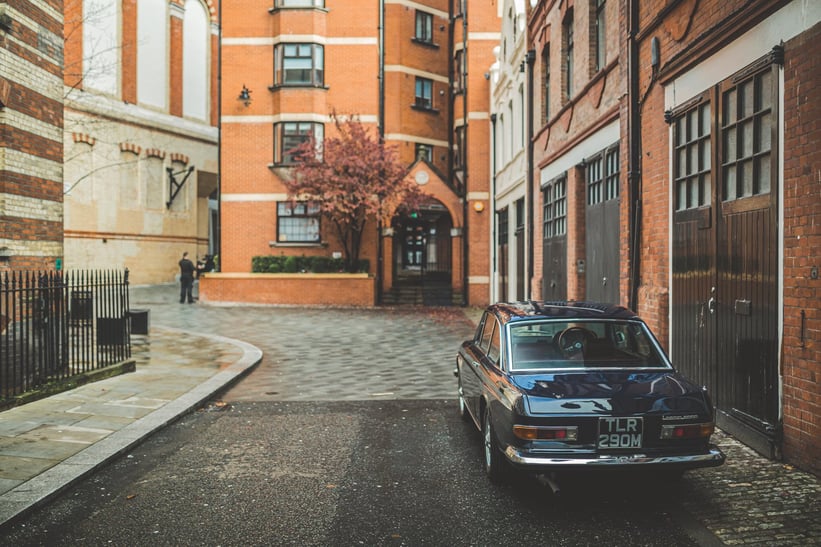

There was a point in the period shortly after he’d bought the car and got it going that the charming 33-year-old artist, gallerist and founder of the Mann About Time vintage watch boutique was calling for roadside recovery so much that he actually got blacklisted from a certain orange-branded company. “This was my first classic car, let alone my first restoration,” he explains. “I naively thought ‘how hard can it be?’”
Old cars form one third of Mann’s personal Holy Trinity, art and watches making up the other two. A born-and-bred Yorkshireman, Mann studied Art History at UCL and has since worked with a number of successful artists, projects and galleries including Riflemaker, Eb & Flow and The Museum of Everything. He and his wife even founded their own gallery, called Berloni, in Fitzrovia together.
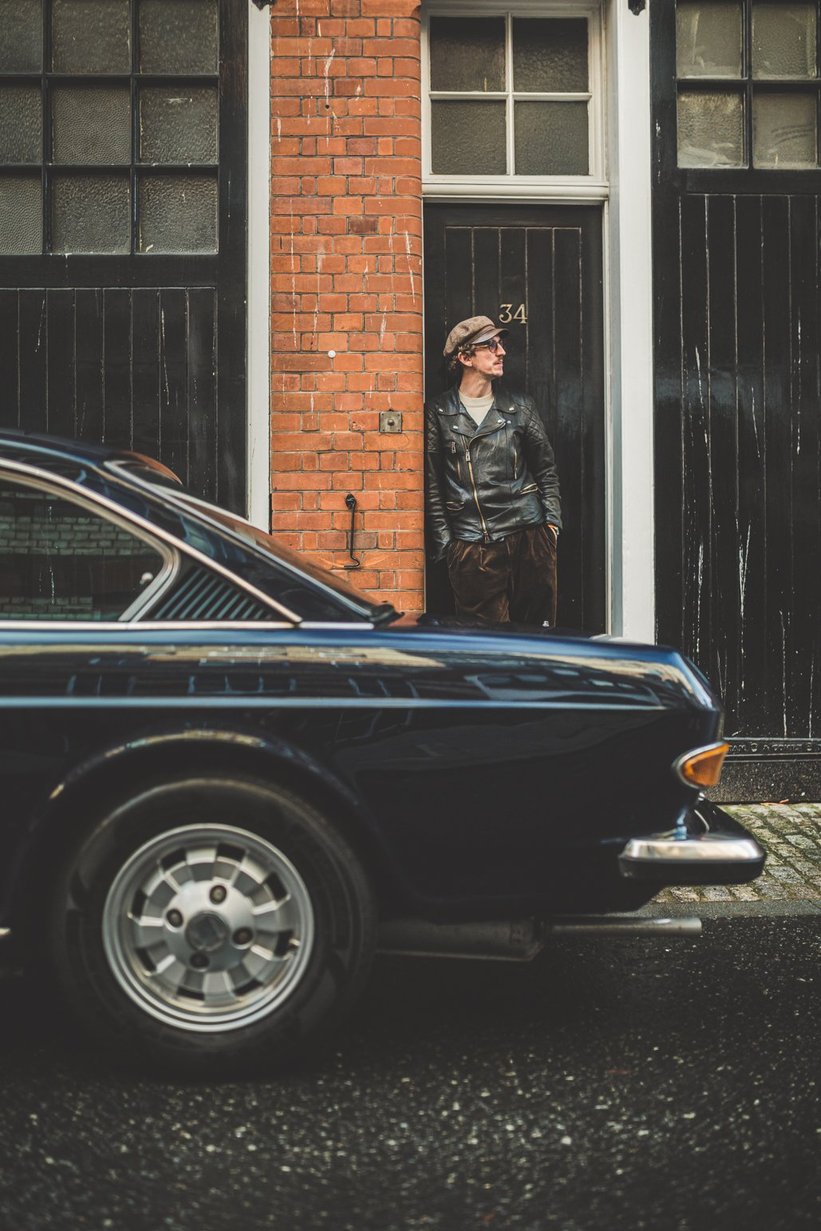

Tired of the extortionate London rent and the ‘circus-like’ nature of the art world, the couple decided to close Berloni in 2016 and Mann now works selling beautiful vintage wristwatches via his Mann About Time boutique and privately trading works for the artists with which he forged the closest relationships over the years, including the immensely popular abstract painter William Bradley. “I love art, I love cars and I love watches,” he enthuses. “I always say that if I didn’t have to work for the rest of my life, I could happily fill every hour – passion is what drives me to try new things.”
It was a fortuitous discovery that kindled Mann’s rollercoaster relationship with this Lancia, made by his good friend Julian Balme, who he’d first met while working at the former Riflemaker contemporary art gallery in Soho. A graphic designer, art director and well-known figure in the classic car world, Balme wound up in the possession of his late neighbour’s lockup back in 2013. To his astonishment, amid the piles of old junk were two very sorry looking Lancias – a Flavia Sport Zagato and an über-rare 2000 HF Coupé.
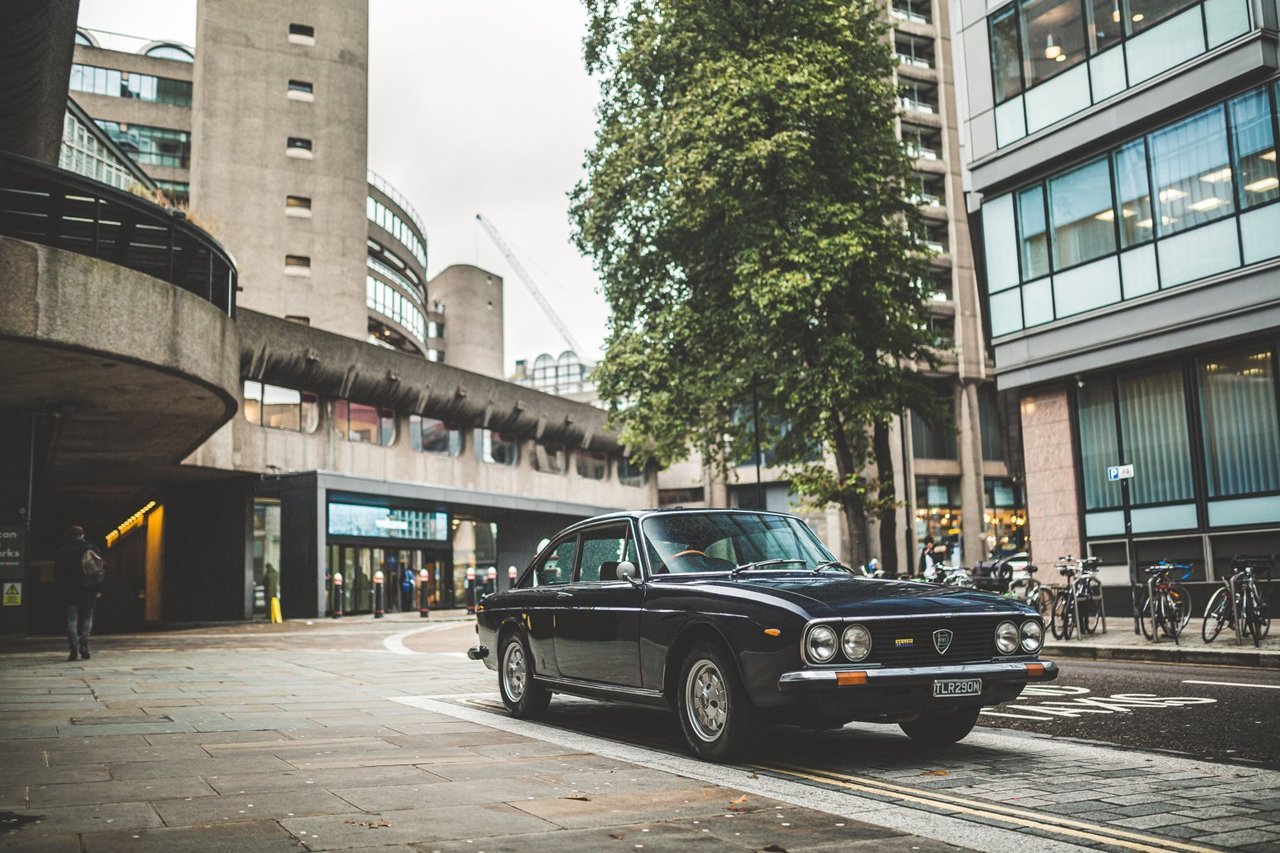
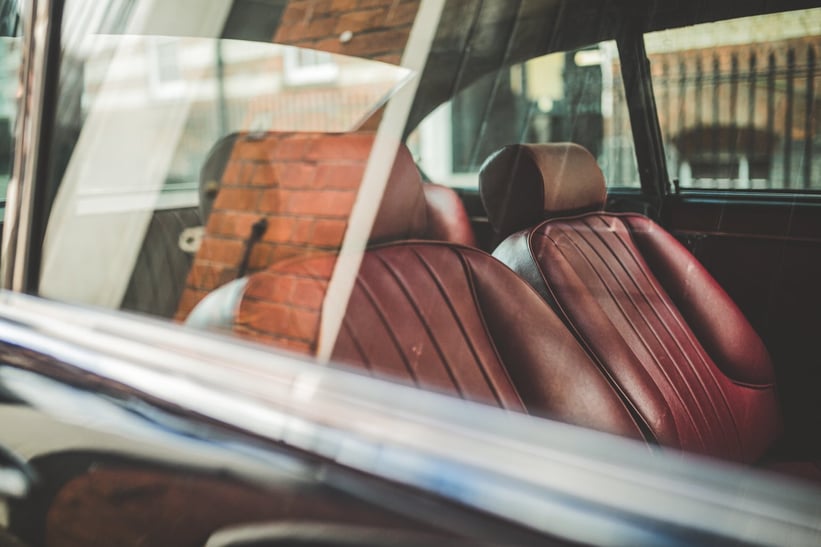
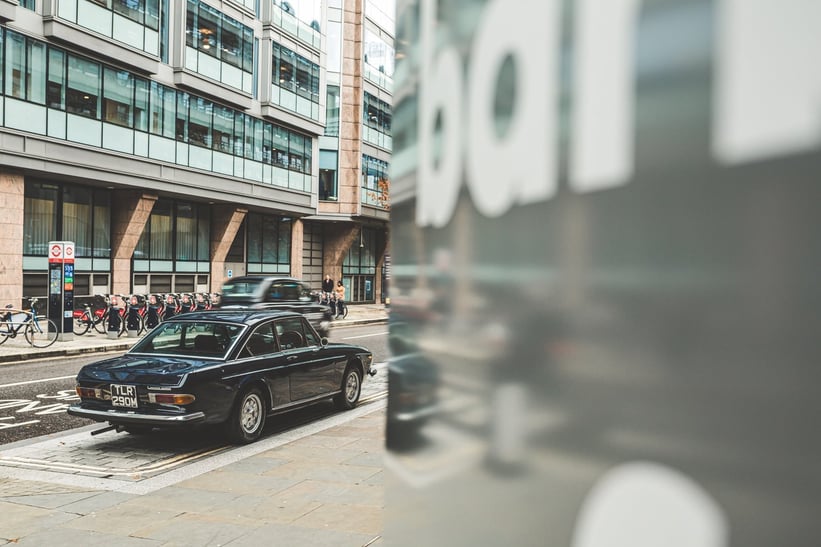
“Because the so-called hobbyists were already being priced out of the market at that point, I simply never thought I’d have an old car,” Mann recalls. “But Jules recognised that my interest was deep-rooted and that I’d come from a family of car lovers so offered me an extremely generous price to take the 2000 HF off his hands.” A plan was immediately hatched to take the car to Mann’s native Yorkshire – where labour is a hell of a lot cheaper than it is in London – and get it back on the road.
An evolution of the Flavia Coupé, the 2000 HF Coupé is a very rare beast indeed. For context, Lancia built around 125,000 Fulvia Series 1s whereas only 1,229 2000 HF Coupés ever saw the Turin sunlight (just a handful of which are currently on UK roads). The car’s resemblance to the Ferrari 330 GT 2+2 both outside and in is no coincidence – they were both designed by that engineer of elegance Pininfarina. We reckon it’s a stunning little thing, understated at first glance but look closer and there’s Italian exuberance all over. Just check out the sharp inlaid creases on the boot lid, a feature we’ve no doubt was dreamed up by Pininfarina’s designers following a long and grappa-heavy lunch.

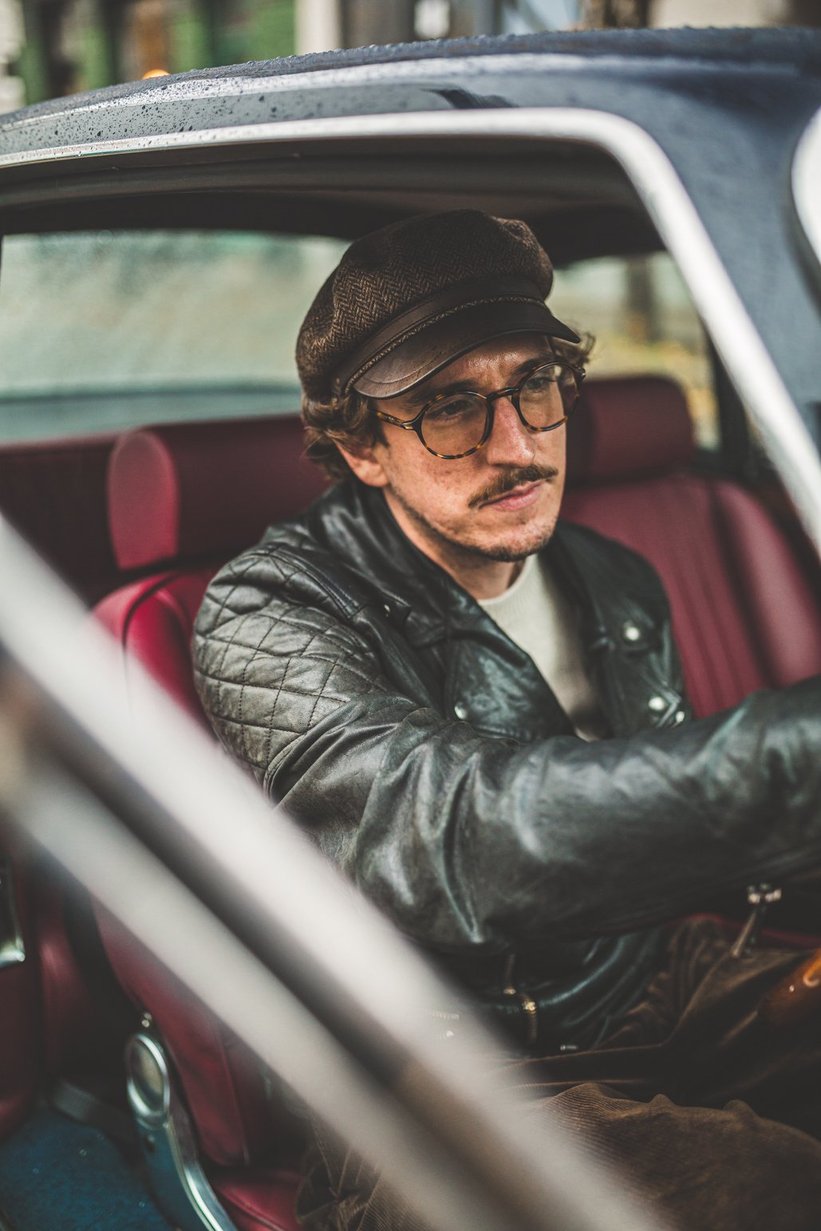
Cossetted in the rich-smelling and remarkably comfortable enclave of burgundy vinyl and wooden veneer, protected from the November rain that’s now hammering the period-correct sunroof above our heads, Mann shows us some photos of the car as it was when it left the lockup for the first time in 25 years (or so the faded tax disc from 1988 would suggest). The transformation from then to now is nothing short of extraordinary. But as we’re about to find out, the process was anything but straightforward.
“Virtually everything about the subsequent stages of this restoration has been filled with headaches, toil and heartache and the downs very much outnumbered the ups for the first few years,” Mann readily confesses. There’s little that’s not been touched, and it shows. New metal was welded into virtually every rust-ridden panel, before the entire car was painted in its original (and very elegant) shade of navy blue. The spacious and airy cabin has been retrimmed in fresh vinyl. The transmission and brakes were both overhauled. The list goes on and on. “The underlying aim has always been to keep it on the road – for me, that’s what it’s all been about.”
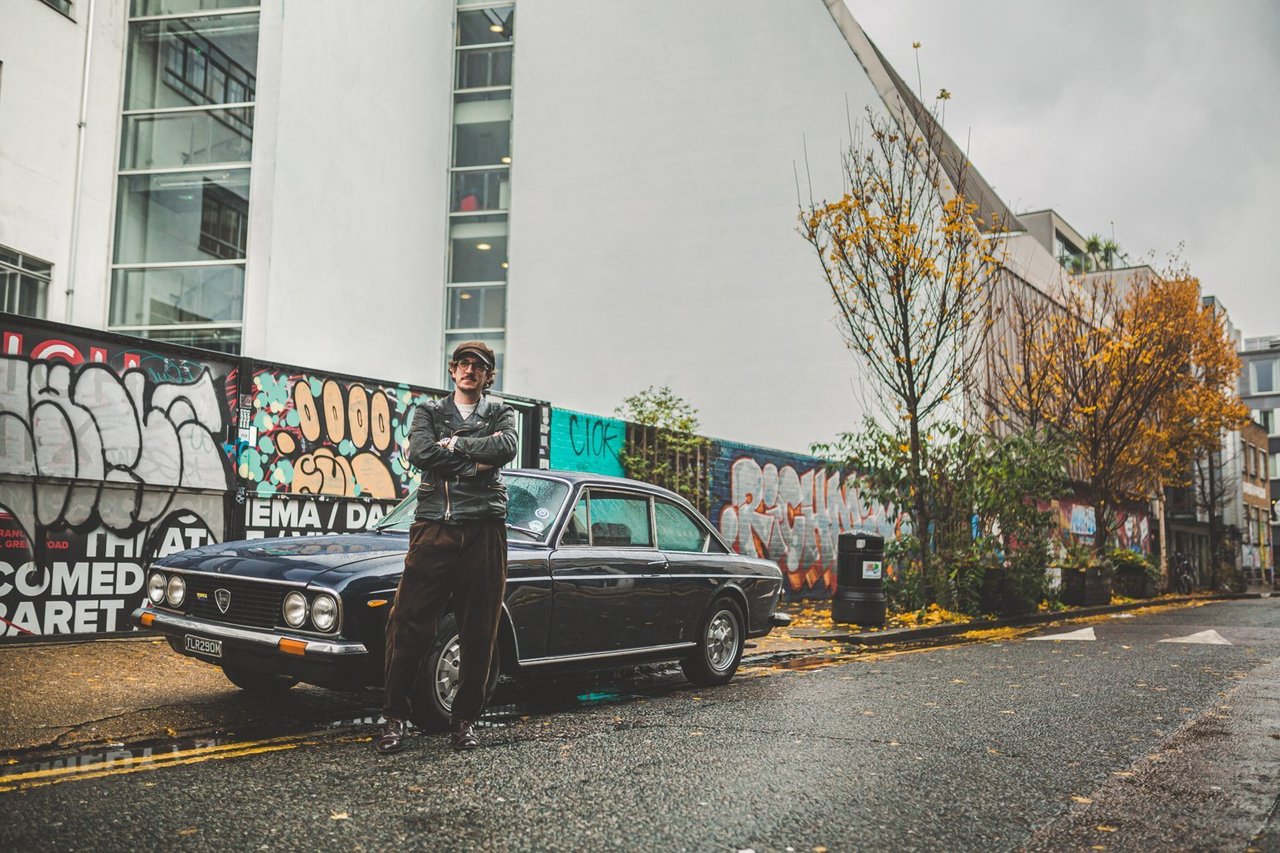
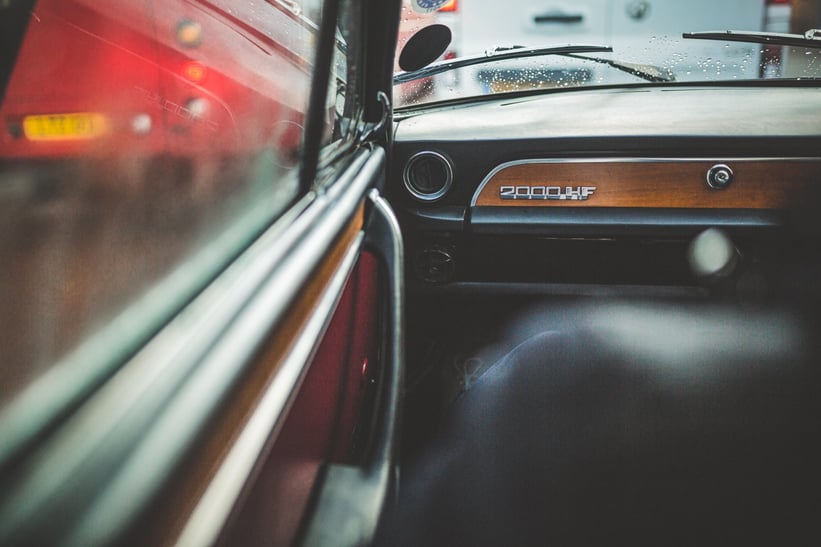
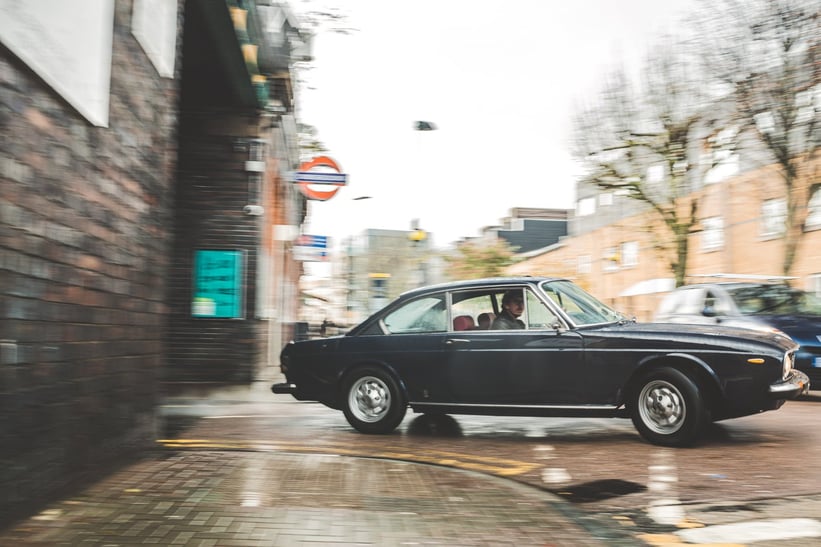
That it took surprisingly little work to get the engine turning over led Mann into a false sense of security. Between countless back-and-forth journeys from London to Yorkshire, several weekend road-trips to the West Country and one all-out assault on the Goodwood Motor Circuit, Mann put around 13,000 miles on the car. Little did he know that he was on borrowed time. An innocuous fuel leak revealed a raft of further issues and the decision was made to take the engine out. It was a wise move – the motor was on the brink of catastrophic failure and the mechanics were frankly baffled that it was running at all.
A comprehensive engine rebuild is the latest job Mann has ticked off his list and right as we’re enveloped by the shadow of the Barbican’s brutalist high-rises, the Lancia has completed around 200 miles of its 1,000-mile running-in period. So, has all the stress and strain been worth it? “Absolutely,” concludes Mann. “I’ve realised I went into this project super naïve – my dad always quietly took care of his classic cars and, as a child, they just worked. I never realised what really goes into them and that fixing one problem tends to reveal another.”
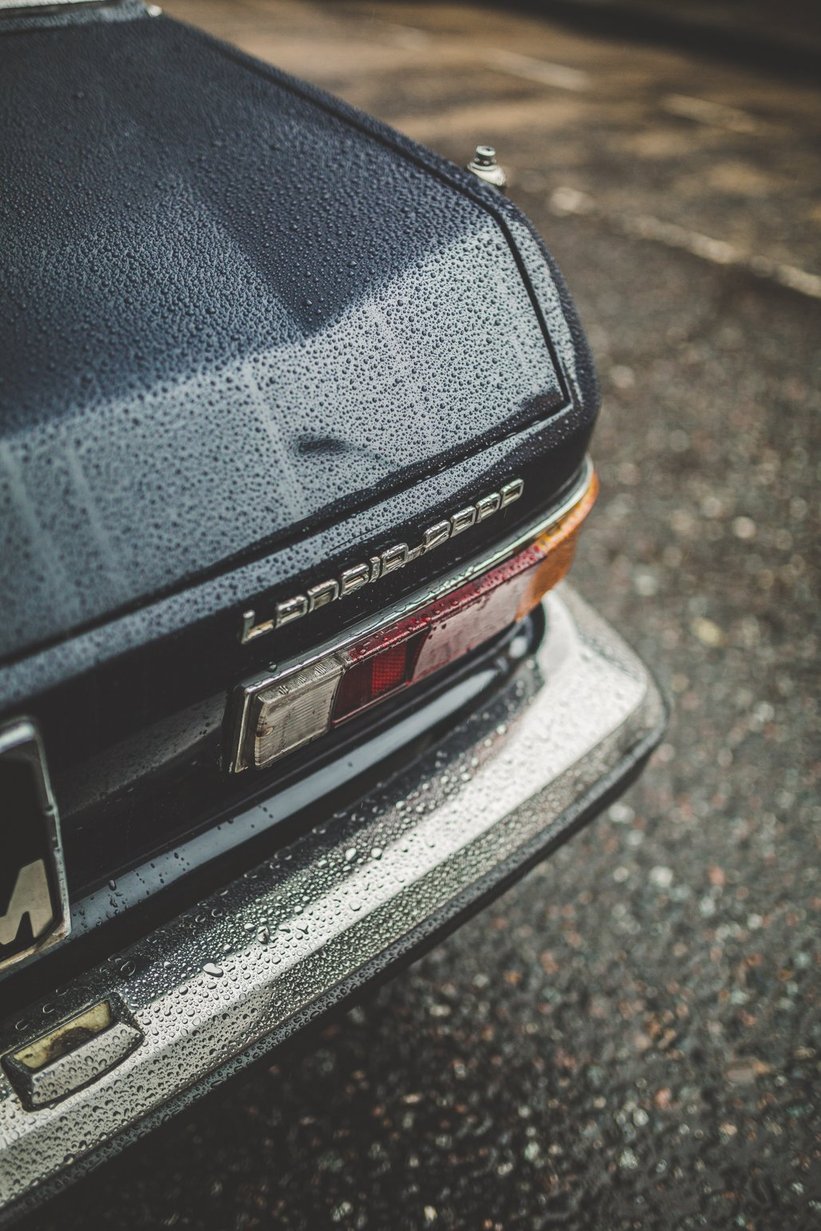
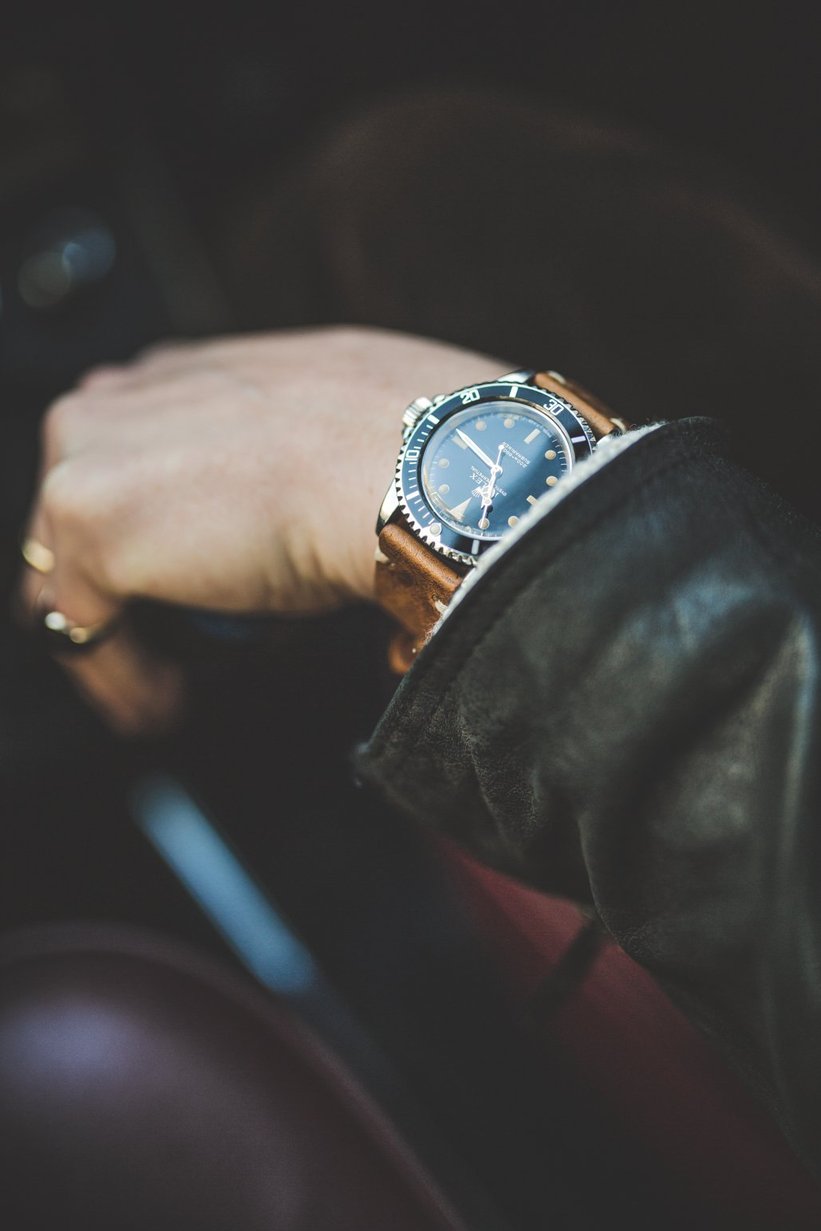
And would he ever sell it? “Never! There have been many roadside moments when I’ve phoned my wife in despair to tell her I’m done with it, but then she’s talked me round. It’s there to make memories and there’s simply too much heartache and joy tied up in it for me to say goodbye. It’s been the perfect storm for a car that most people would have thought was destined for the scrapheap. For better or worse, I stopped that from happening.”
As we hop out at a set of lights outside Highbury & Islington tube station and wave Mann goodbye, the car is thrumming away happily, as it has done so all day long (we’ve shot enough old cars in the city to know that’s rarely the case). Fair play for sticking at it, Robin – you’ve got yourself a good’un there.
Photos: Robert Cooper for Classic Driver © 2019






























